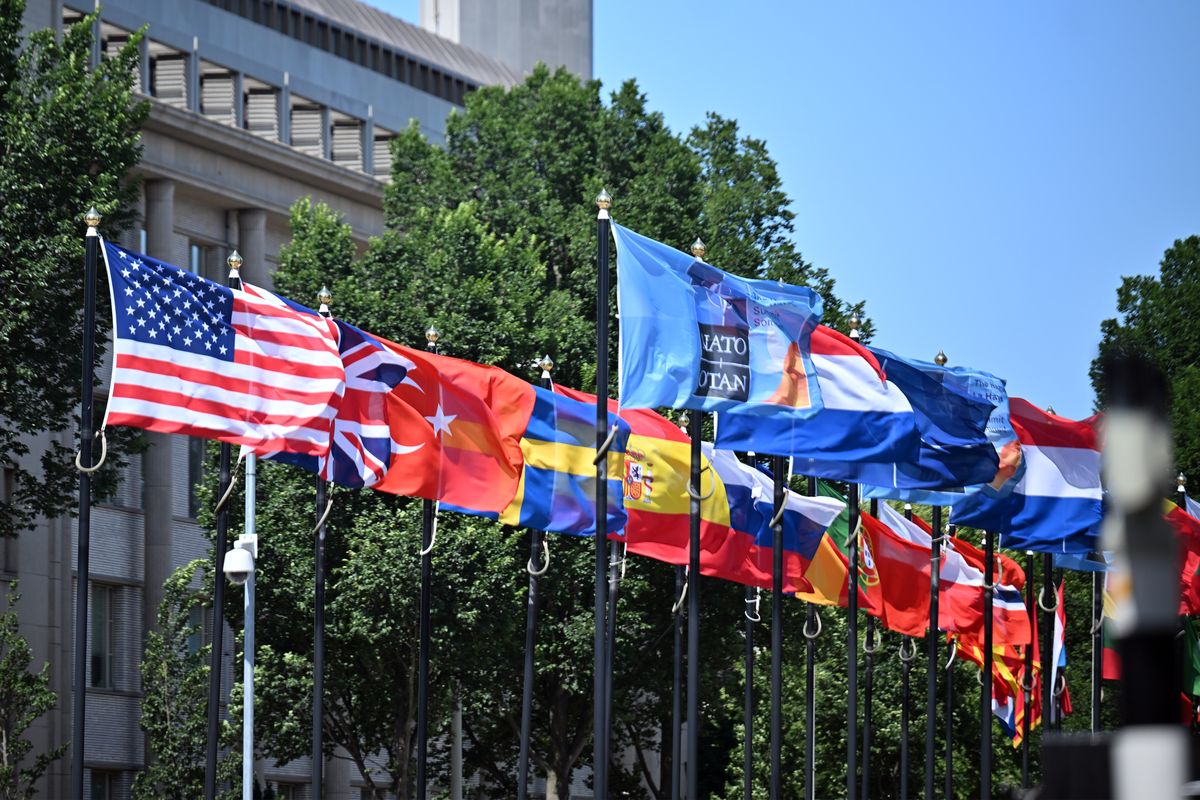Britain will be more committed to the North Atlantic Treaty Organization (NATO) and its bilateral relationships – particularly with the U.S. – post-Brexit, said Britain’s Secretary of Defense Michael Fallon in Washington on Thursday.
The UK has “no stronger bilateral relationship than that with the U.S.” and together, the UK and U.S. will lead the world in security, said Fallon at an event hosted by The Cohen Group. He expects Britain will work more closely with the U.S. on tomorrow’s technologies – automated weapons systems, for example – to ensure security.
By voting to leave the European Union, Britain will also be out of the European Defence Agency. According to Fallon, that means the UK will not be bound to certain defense technology procurement requirements, which could lead to more business between the U.S. and UK in the defense and technology sectors.
Moreover, the UK aims to have 25 percent of its defense spending go to small and medium-sized enterprises (SMEs), said Fallon, in an effort to innovate and modernize the armed forces.
Modernization is actually a NATO commitment that is often left out of the conversation. In 2006, NATO members agreed to spend a minimum of two percent of GDP on defense and allocate at least 20 percent of defense expenditures toward modernization of major equipment. Both commitments remain unfulfilled by a number of NATO countries.
As a sign of the UK’s dedication to modernization, new Prime Minister Theresa May’s first act was to lead the vote in the British Parliament for the renewal of the UK’s Trident nuclear weapons system, noted Fallon. Members of Parliament approved the manufacture of four replacement submarines to carry Trident missiles.
“The nuclear threat has not gone away. If anything, it is increasing,” according to Fallon, who made clear the benefits of having a nuclear-equipped country like the UK take part in NATO. Nuclear capability is a huge deterrent on its own, vis-à-vis Russia, said Fallon.
Fallon did not comment on a potential Scottish referendum for independence in the wake of the Brexit decision that could pose a threat to Britain’s nuclear arsenal. The Trident submarines are based at Clyde Naval Base on the west coast of Scotland.
Fallon’s overarching message was that the UK and its allies must defend the values of democracy, rule of law, and freedom in an environment of threats which seek to undermine the current world order. Those threats include Russia, China, North Korea – all nuclear countries – cyber attacks, hybrid warfare, and global terrorism.
Echoing French Minister of Defense Jean-Yves Le Drian’s remarks yesterday, Fallon pointed out that the Islamic State (ISIS) has lost around 40 percent of its territory in Iraq and 20 percent in Syria. Fallon told The Cipher Brief that this loss of territory will also aid in defeating the ISIS propaganda machine. He commented that Britain and Saudi Arabia are leading efforts to develop a strategic communications strategy to counter ISIS messaging.
The UK, said Fallon, is no less vulnerable to ISIS-inspired terror attacks – like last week’s attack in Nice – than any other European country. Britain will play a role in thwarting global threats, said Fallon, adding that security will be “front and center.”













